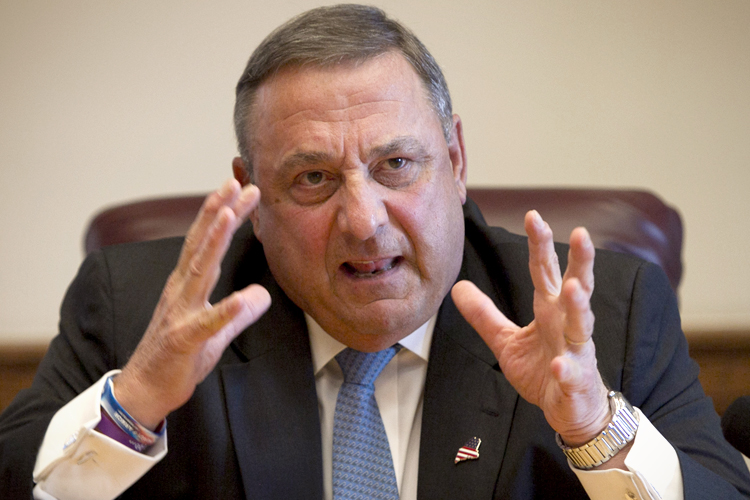At this point in an election year, when advertisements from candidates and super PACs begin to march across the line between “constant” and “oppressive”; when the attacks levied by the respective campaigns begin to get faster, looser and more frequent; and when most voters are just beginning to pay attention, the political media tends to go into high theater criticism mode.
Every decision the candidates make, whether conscious or merely perceived, is analyzed by members of the media not from the viewpoint of the journalists themselves, but rather from what they imagine is the perspective of an average voter — or an undecided voter, or a female voter, or a Latino voter, and so on. At a certain point, it can feel more like a scathing pantomime of democracy than the contemporary manifestation of the real thing.
So when I saw President Obama being criticized by some pundits recently for saying his policies were on the ballot this November even if he was not — and consequently thwarting red state Democrats’ attempts to distance themselves from him — I was at first inclined to dismiss it as more savviness for its own sake. If there was something interesting about the moment at all, I thought, it was that the usually on-message Obama made such a petty and silly mistake. Now I’m having second thoughts.
The primary reason why is a recent succession of more substantial rhetorical faux pas from three Republican candidates — Sen. Mitch McConnell, Gov. John Kasich and Gov. Paul LePage — which have me reconsidering whether the president’s comment was truly a mistake. Whether he meant to or not, by placing himself back on center stage, Obama challenged the savvy position, which holds that Dems are wise to avoid defending his achievements (Obamacare chief among them) and to focus instead on slamming congressional Republicans. After what I’ve heard from McConnell, Kasich and LePage? I’m not so sure.
Since Salon’s already covered the feeble attempts by McConnell and Kasich to argue the popular parts of Obamacare don’t count, I’ll focus on LePage’s comments, which came Tuesday night during the Maine gubernatorial race’s final televised debate. Asked to defend his decision to reject Obamacare’s Medicaid expansion, which denied some 70,000 Maine residents access to affordable healthcare, the famously intemperate and radical Tea Party governor tried to sound as if those tens of thousands lacking coverage was not his fault. “[T]here are people under the federal poverty level,” LePage granted. “They need to be able to go to the exchanges …Take those that do not qualify and then find a way to get them insurance.”
When pressed by a moderator to acknowledge that a reason many people weren’t covered was because he had rejected the element of Obamacare designed to help them, LePage responded with pure nonsense. “That’s ACA,” he said, referring to the Affordable Care Act, Obamacare’s official name. “I didn’t put that in.” Reminded that the unaffordable deductibles keeping many Mainers without insurance long predated Obamacare (and were in fact part of the reason for its passage in the first place), LePage wouldn’t budge. “Yeah, well, that’s ACA,” he said. “That’s what I’m saying. The ACA has changed the entire system.”
This answer, of course, makes absolutely no sense. Despite what you heard throughout the last presidential race, Obamacare is not responsible for every bad thing that’s ever happened since March of 2010. U.S. healthcare sucked before the ACA’s arrival, and it’ll still suck long thereafter. And while LePage is, proudly, not the kind of person you’re likely to mistake for a wonk, he’s certainly smart enough to know this much. For McConnell and Kasich — and, really, a growing number of all Republican politicians — the story’s the same.
Due to the Maine electorate’s baffling and maddening insistence on reliving the 2000 presidential election again and again, LePage may end up once again winning the governorship by prevailing in a three-person race with only a plurality of votes. And because Kentucky is Kentucky, and Ed Fitzgerald is a fool, McConnell and Kasich are quite likely to win their races this year, too. But it would be wrong to interpret those outcomes as indictments of the “make ‘em talk” approach. It’s much too late in the game now for campaign professionals to switch strategies and then claim they gave it an honest try.
Keep in mind: The reason Dems should’ve spent more time forcing Republicans to come up with better answers to Obamacare questions than McConnell, Kasich and LePage could muster isn’t in order to expose them as policy dunces. Most voters still don’t understand what’s in Obamacare, either. Instead, what defending Obamacare would have done is place Republicans in the increasingly difficult position of attacking a program that is now helping literally millions of people without relying on arguments that are obviously “ideological” or “political.” As Kasich himself briefly acknowledged, voters may entertain those kinds of appeals in the abstract; but once we move from the seminar to the world of “flesh and blood,” appeals to theory aren’t enough.
As the editorial board of the New York Times wrote on Tuesday, red state Democrats’ insistence on merely expressing a desire to “fix” Obamacare, “as if it were a wreck alongside the road,” could alienate voters who’d never side with the GOP but who’d still “prefer a party with a spine.” And in the era of voter ID, Democrats don’t simply need voters. They need voters enthusiastic enough to traverse whatever obstacle course to the voting booth is put in front of them. Ultimately, red state Democrats should worry less about whom voters think they’re voting for — for Democrats, for Obama or against Republicans — and worry more about whether they’ve given them good reason to vote.

